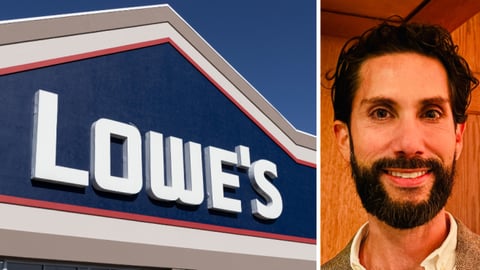How to Respect Privacy and Still Win with Advertising
Consumers want brands to customize their advertising experiences. In fact, they’ve come to expect it.
A recent report by McKinsey found that 71% of consumers expect customization, and 76% get frustrated when they don’t receive a humanized interaction with a brand.
At the same time, consumers also increasingly expect — and deserve — respect for their data privacy. A KPMG study indicates that 87% of U.S. consumers view data privacy as a human right. This expectation has led to recent data privacy legislation such as the California Consumer Privacy Act (CCPA) and four comprehensive state-wide data privacy laws.
Private companies are shifting the rules, too. Apple now provides users with the choice to block the IDFA at the app level, and Google will eliminate third-party cookies from Chrome in 2023. These improvements in transparency empower consumers but panic advertisers.
But no need to panic. Yes, brands must be exceedingly cautious in the way they collect and leverage user data, and they must pivot and innovate immediately to gather more first-party data and make the most of what data is available to them. Building a probabilistic strategy and generating new ways to target and message will be critical to success in this new era.
Thankfully, there are ways for advertisers to ensure privacy compliance while offering the relevant experiences that consumers expect. Let's look at a few.
Invest in High-Quality First-Party Data
Brands with ample first-party data can transform privacy changes from a challenge to a competitive advantage, capitalizing on trusted relationships with consumers to provide targeted messaging that rivals lack.
For example, Samsung recently introduced a program that will let brands use their own first-party datasets to target ads to certain audiences on more than 50 million smart TVs in the U.S. Brands who have implemented consensual first-party data systems will be able to realize the most value from tools like Samsung’s to power granular, targeted advertising in the privacy era.
Just as important as collecting first-party data, though, is understanding that the quality of such data is more important than the quantity. 1:1 Deterministic targeting will not have the scale that it once did. Rather than collect IDs from all customers, marketers need to focus on high-quality, insightful data: demographic, psychographic, transactional, and trending data from which to build scalable and representative models for advanced targeting and messaging.
Of course, one way for brands to amass high-quality consumer data is to ask customers directly for it, offering strong incentives via loyalty programs, gamified experiences, and other rewards. But loyalty programs alone do not suffice. Rather, brands will have to meld stronger data collection systems with new capabilities that allow them to make the most of the more limited information at their disposal.
Find Probabilistic Alternatives to 1:1 Deterministic Data
It has become commonplace in adtech thought leadership to tout first-party data as a magic bullet to privacy challenges. But first-party data is unlikely to match the scale of the third-party data that has driven advertising for the last decade. The solution is not to delay a shift to first-party data but rather to invest in resources to extrapolate its value via probabilistic targeting, allowing advertisers to do more with less.
Last year, a major skincare brand used probabilistic models to target users based on time of day. The brand used factors calculated when consumers were waking up and starting their skincare routines, or when they were likely to be making online purchases, in order to appropriately target. The brand then served users targeted ads that would let them add products from online marketplaces into their shopping carts.
[Related: L'Oréal Doubles Down On Personalization]
By building core strategies that leverage probabilistic data that is privacy-compliant, brands can provide consumers with individualized experiences while ensuring scaled addressability. And they can do this with the data ethically and practically available to them. More importantly, it enables a future-proofed approach to marketing strategy.
Develop and Test for Micro Cohorts
Micro cohorts — small collections of users that share demographic and/or psychographic similarities — present another privacy-compliant means to maximize advertising value with comparatively smaller customer data samples. Advertisers can test at a micro-cohort level to determine which audience segments are most interested in their products and develop messages that best resonate with them.
Brands may be surprised to discover which specific groups of people will respond best to advertising efforts. For example, one might assume that luxury chocolate brand Godiva's audience is concentrated among high-income buyers. But research has shown the shoppers most likely to buy Godiva's products are actually aspirational shoppers who like the brand's high-end feel. This insight opens up a new micro cohort for Godiva to test and court.
There are always meaningful micro segments that brands can discover, thereby maximizing advertising impact without a one-to-one understanding of millions of customers. Advertisers who identify them through repeated testing and adjust their creative, messaging, and timing accordingly will earn opportunities to discover entirely new potential customers.
Advertising’s Future
It’s a delicate dance — respecting user privacy while providing relevant and impactful advertising experiences. But it’s the new reality. Advertisers who pivot and innovate now, not only collecting more first-party data, but also developing means to make the most of the information available to them, will be light years ahead of their competitors by the time the next privacy bill gets signed into law.
Ines Henrich, VP, CPG Strategy, Aki Technologies






